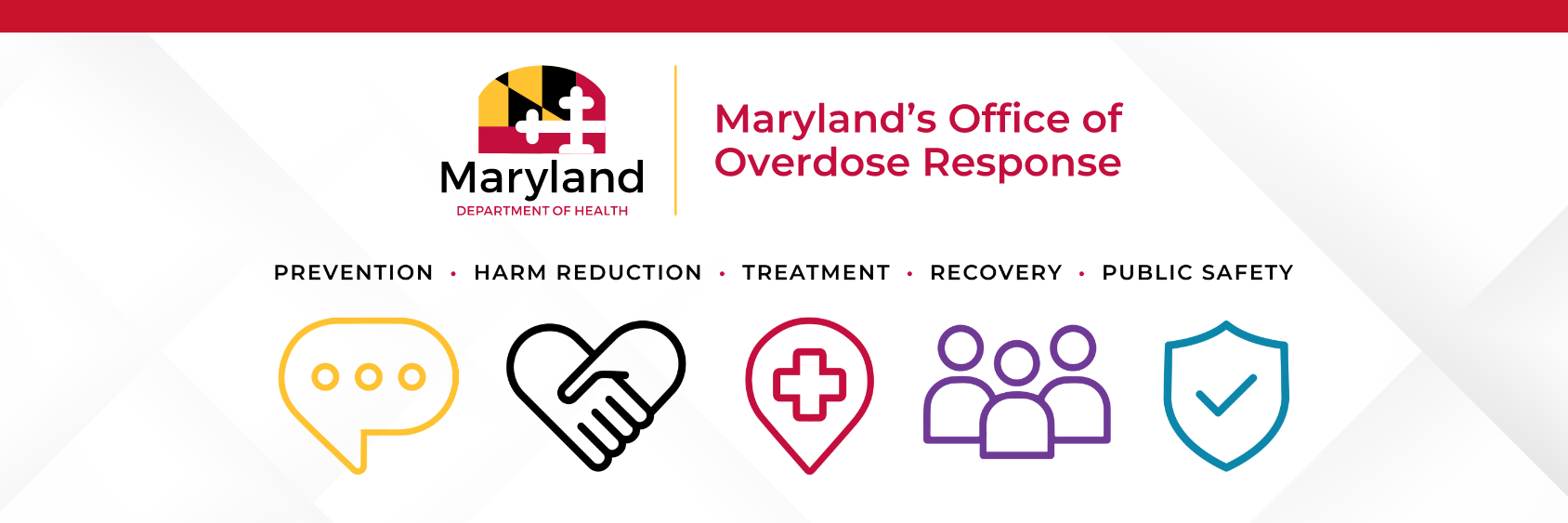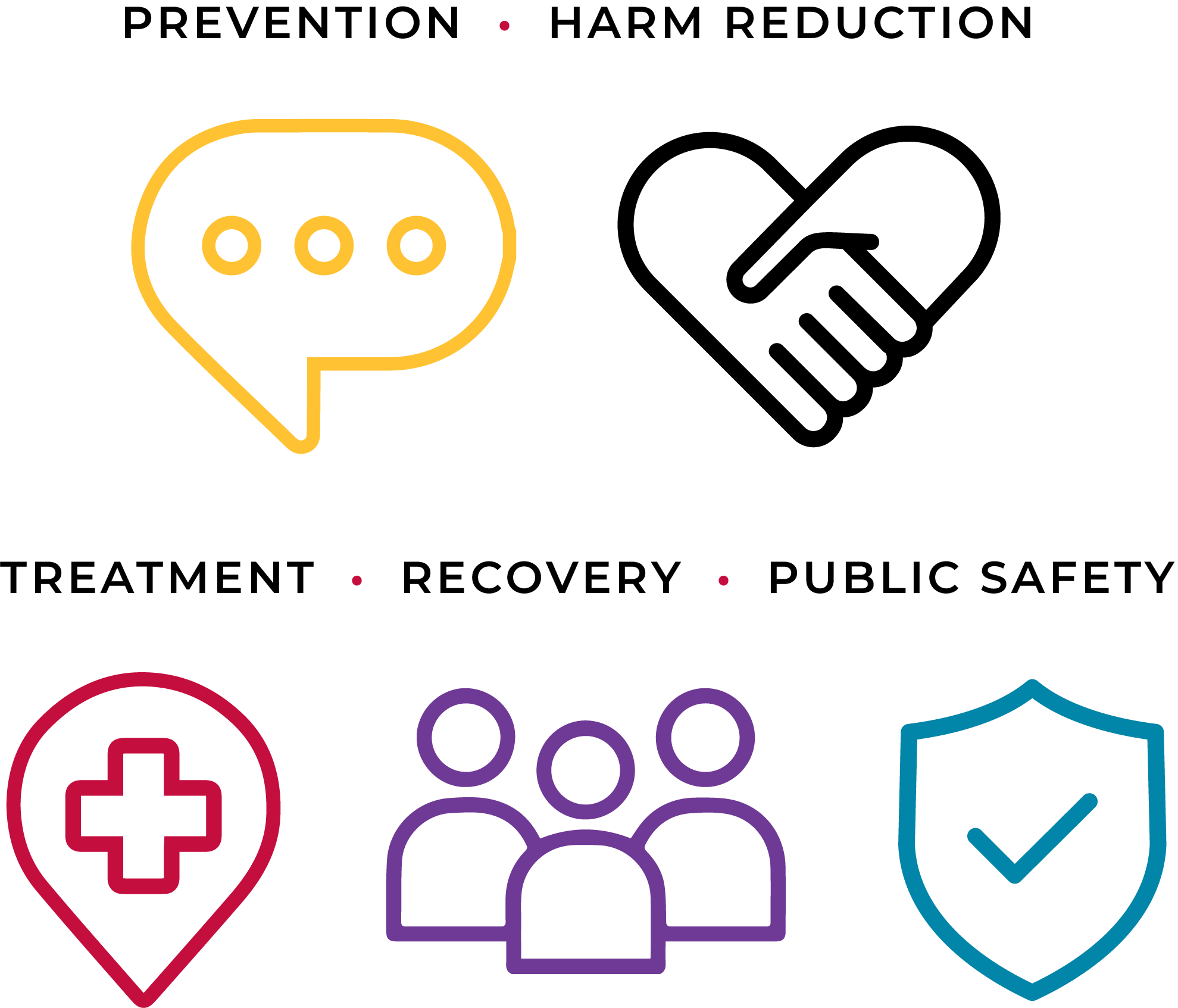
Maryland’s Office of Overdose Response promotes collaboration across all state and local agencies working to address substance use and overdose in the state. We coordinate the inter-agency process to identify the state’s strategic priorities for preventing overdoses, and we work to promote the Governor’s policy agenda by focusing on programs and policies under five pillars: Prevention, Harm Reduction, Treatment, Recovery, and Public Safety.
Read more about our mandate here: Executive Order 01.01.2023.21

Opioid Prevention Teams
Maryland’s Office of Overdose Response works with partners in all 24 local jurisdictions in Maryland to share best practices and to promote evidence-informed programs to prevent overdose deaths. Each jurisdiction is required to maintain an Overdose Prevention Team, which works to promote multidisciplinary collaboration to expand substance use-related supports.
Overdose Prevention Teams are responsible for developing a local strategy to reduce overdoses in their communities and hosting meetings to discuss updates. Teams bring together representatives from various local agencies to identify gaps in resources, share relevant data, and promote collaboration. Each Overdose Prevention Team is chaired by the local health officer and includes partners from local agencies, providers, and community groups.
Learn more about Overdose Prevention teams here: https://stopoverdose.maryland.gov/overdose-prevention-teams/
Maryland Overdose Response Advisory Council
The Maryland Overdose Response Advisory Council is chaired by Lt. Governor Aruna Miller and includes representatives from 18 state agencies working to reduce overdose morbidity and mortality in Maryland. The advisory council shares data related to the overdose crisis across agencies and provides strategic guidance for increasing access to substance use care and addressing disparities in overdose outcomes.
Members include the following state agencies:
- Maryland’s Office of Overdose Response;
- Department of Health;
- Department of Human Services;
- Department of Housing and Community Development;
- Department of Labor;
- Department of Commerce;
- Department of Education;
- Department of Public Safety and Correctional Services;
- Department of Juvenile Services;
- Department of Emergency Management;
- Department of Veterans Affairs;
- Department of Aging;
- Department of Disabilities;
- Governor’s Office of Crime Prevention, Youth and Victim Services;
- Institute for Emergency Medical Services Systems;
- Office of the Public Defender;
- Maryland Judiciary; and
- Maryland State Police.
For detais about upcoming meetings of the Maryland Overdose Response Advisory Council, visit StopOverdose.maryland.gov/morac.
Stay in Contact!
To receive notifications regarding Maryland’s overdose crisis response efforts, please complete the following form to be added to our mailing list.
Mailing List Sign-Up Form
Phone: 443-381-9221
Address: 100 Community Place, Crownsville, MD 21032
Email: StopOverdose@maryland.gov.


 1-888-373-7888
1-888-373-7888 233733
233733